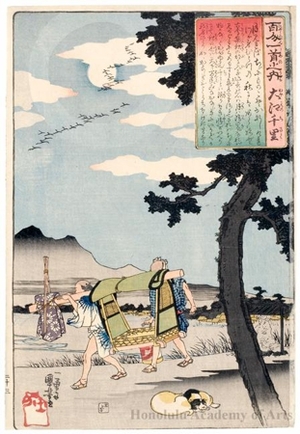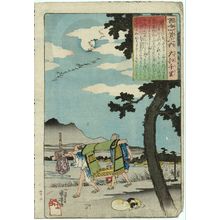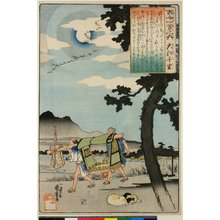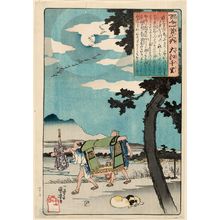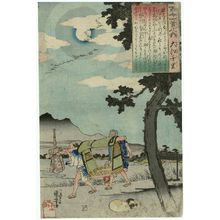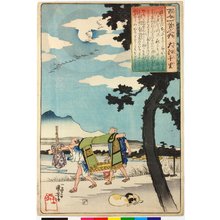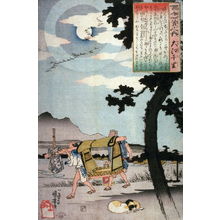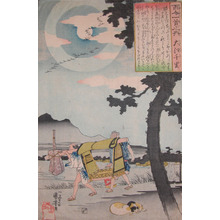歌川国芳による浮世絵「Öe no Chisato」
作者:歌川国芳
作品名:Öe no Chisato
制作年:c. 1840
詳細:詳細情報...
情報源:ホノルル美術館
浮世絵(全 5,476 件)を表示...
説明:
This print was conserved with the support of the Robert F. Lange Foundation. Autumn does not come for me alone among men yet I am burdened with a thousand vague sorrows when I gaze upon the moon. (translation by Helen McCullough) Öe no Chisato (late 9th-early 10th century) was a nephew of Ariwara no Narihira (also featured in this exhibition), and a renowned Heian court poet and scholar of Chinese poetry. His expertise in the Chinese language enabled him to actively translate Chinese poems into waka compositions, many of which were collected in his personal anthology Kudai Waka (Japanese Poems Based on Lines from Chinese Verse, 894). This poem, which was included in the Collection of Poems Ancient and Modern (905) and eventually One Hundred Poems by One Hundred Poets, is a translation of a poem originally composed by the Tang dynasty poet Bai Juyi (772-846). Staying true to the poem's original meaning, Kuniyoshi has made the full moon the focal point of his print, but also included some interesting features quite unlike conventional portrayals of this autumn motif. Instead of setting the moon against a dark background, Kuniyoshi has set it in pale blue with an intense white halo, creating an impression of the full moon illuminating the entire sky. To indicate that this is a nighttime scene, he has colored the mountains, trees, and shadows cast on the ground in black. The flock of wild geese flying toward the moon is another sign of autumn. One of the palanquin bearers presumably feels a thousand sorrows as he experiences the same feelings as the poet beholding the autumn moon in the night sky. Both the poem and an explanation of this scene are contained in the upper right cartouche.
